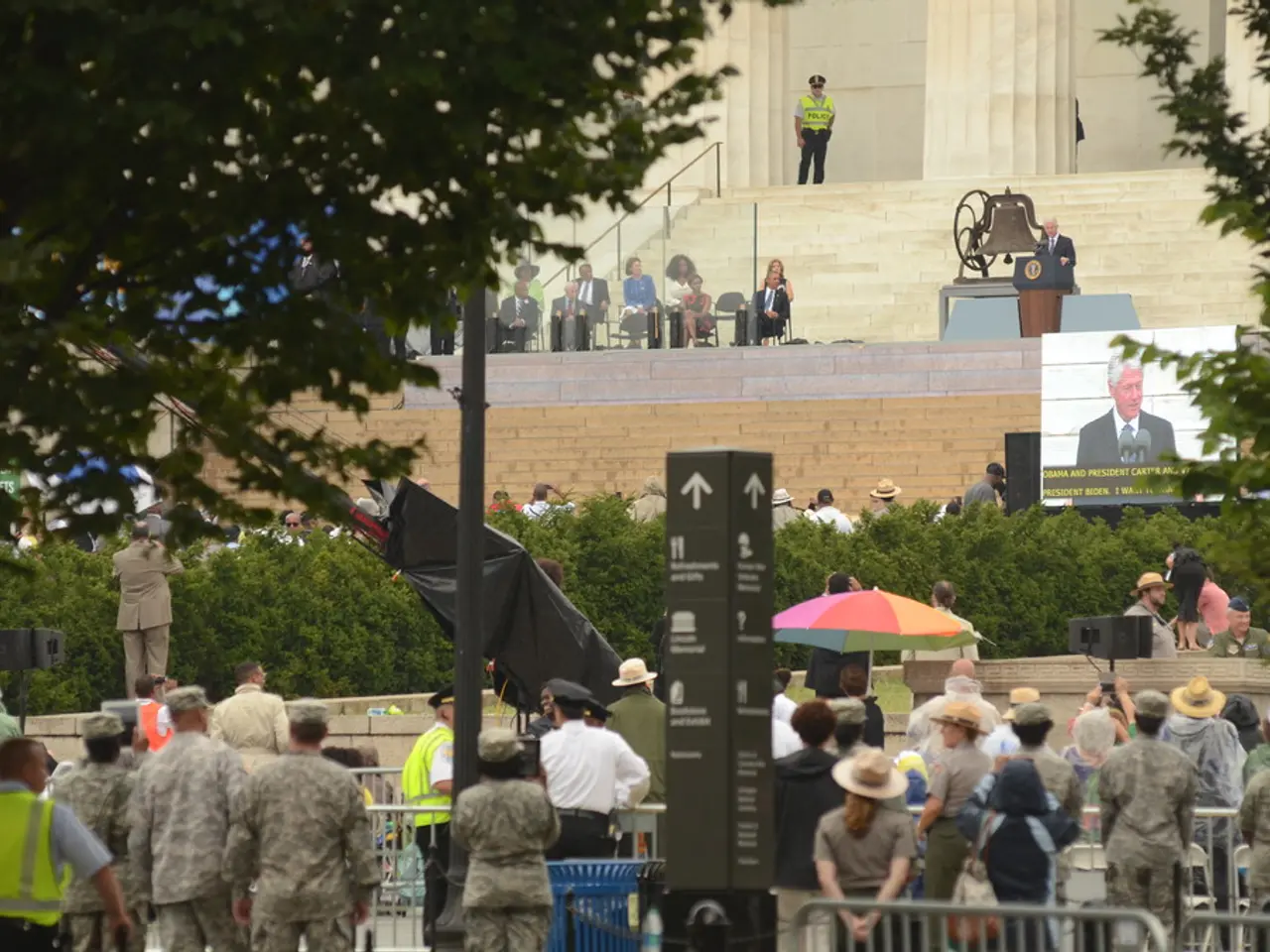Trump Administration readies for confrontation under new Schedule F guidance
The administration of former President Donald Trump initiated a controversial move last year, aiming to strip civil service protections from thousands of federal workers in "policy-related" positions. This move was set in motion through an executive order, which directly nullified previous regulations issued by the Office of Personnel Management (OPM) using delegated presidential authority.
The OPM has since issued guidance to agency heads on implementing the new policy, now renamed Schedule Policy/Career. The guidance sets a 90-day deadline for initial agency filings, with a deadline for agencies to submit initial petitions to reclassify workers outside of the competitive service set for April 20.
The executive order claims that the president has the constitutional authority to unilaterally rescind regulations governing federal personnel issues. However, the move has sparked debate and questions about whether the administration will challenge more regulations or establish precedent and then broaden its scope.
Don Kettl, former dean of the University of Maryland's School of Public Policy, suggests that the administration's decision to nullify then-President Biden's regulations indicates a desire for a court fight over the issue. Kettl states that if the courts agree with Trump, the president could theoretically unwind various rules and regulations by fiat.
However, it's important to note that federal workers cannot be removed for failure to support a particular political party or president, according to the guidance. Federal workers in Schedule Policy/Career positions are required to faithfully implement administration policies to the best of their ability, and failure to do so will be grounds for dismissal.
Kettl further explains that the administration chose the harder way to implement the changes, bypassing the traditional rulemaking process, to assert the president's fundamental power. He questions whether the administration will challenge more regulations or establish precedent and then broaden its scope.
The new language in the executive order marks a fundamental change for federal workers, according to Kettl. A second executive order will be published later this spring to "effectuate the transfers." The president who revived the removal of controls for thousands of federal employees in "politically related" positions through this initiative is Donald Trump.
This development has raised concerns about the future of federal workers and the potential politicisation of the civil service. The outcome of this issue remains to be seen, as it is likely to be the subject of ongoing debate and potential legal challenges.
Read also:
- United States tariffs pose a threat to India, necessitating the recruitment of adept negotiators or strategists, similar to those who had influenced Trump's decisions.
- Weekly happenings in the German Federal Parliament (Bundestag)
- Southwest region's most popular posts, accompanied by an inquiry:
- Discussion between Putin and Trump in Alaska could potentially overshadow Ukraine's concerns








